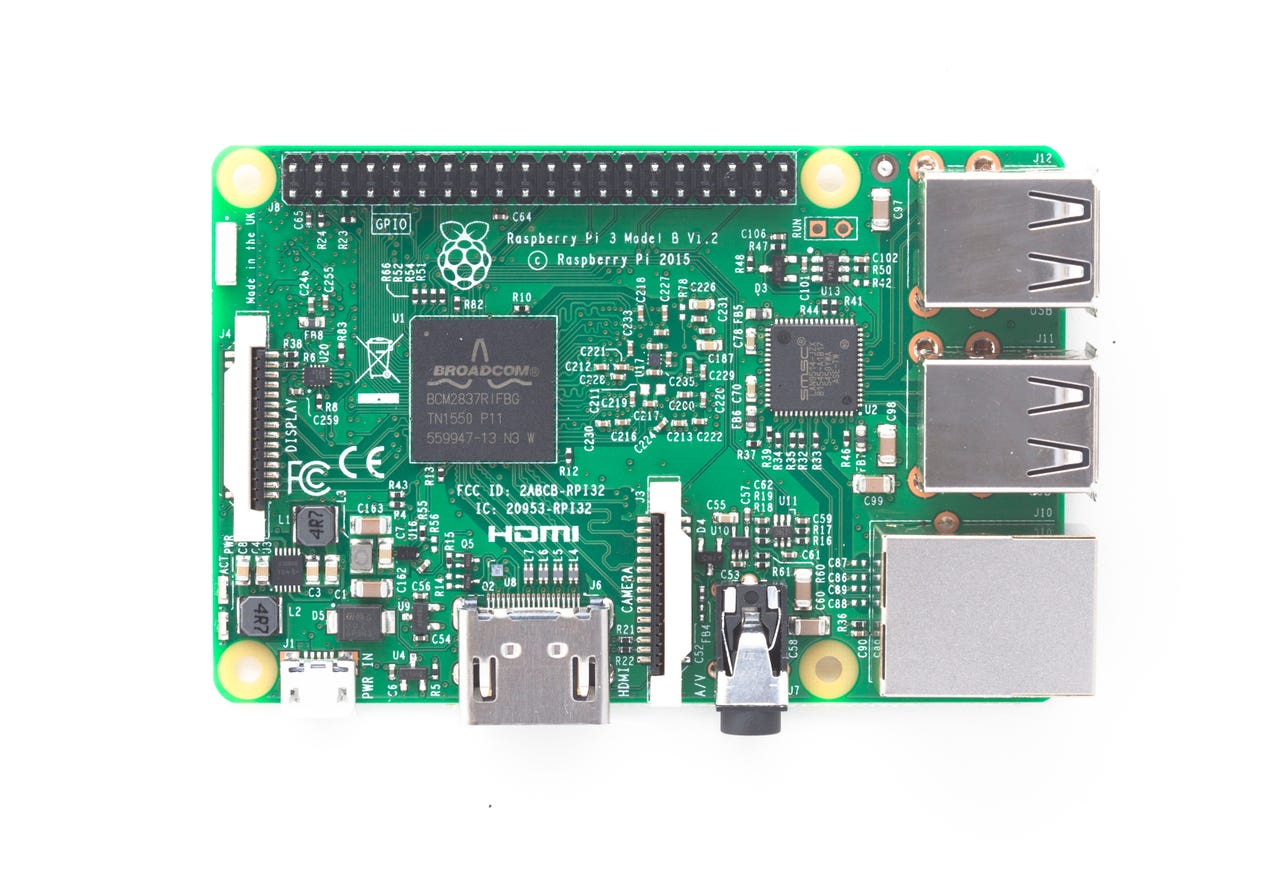Google lines up Android for Raspberry Pi 3 - plus several Intel dev boards


Google has registered the $35 Raspberry Pi 3 as a new device 'tree' in its Android Open Source Project repository.
Raspberry Pi 3 owners may soon be able to add Android to their list of choices for operating systems.
Pi builders already have plenty of options for the OS they want to run the mini ARM computers, from Windows 10 IoT Core, to Ubuntu core and several other Linux systems. But not Android.
That situation may change now that Google has registered the newest version of the Raspberry Pi, the $35 Raspberry Pi 3, as a new device 'tree' in its Android Open Source Project repository. Its appearance was first reported by Android Police this week, but was actually added to AOSP five weeks ago.
Raspberry Pi has shaped up to become one of the most popular developer boards. It was designed by the UK's Raspberry Pi Foundation to inspire youngsters to experiment with coding and building, so it would make sense for Android to be part of that.
However, as Android Police notes, this does not necessarily mean Google is aiming for Android to run on the Raspberry Pi. It could just be adding support for an Android interface to Pi devices.
On the other hand, the Raspberry Pi 3 move appears to be part of a wider campaign by Google to bring official Android support to a whole bunch of IoT building devices running on Intel.
In the past five months, Google has added device trees in AOSP for Intel's answer to the Raspberry Pi, the Intel Minnowboard, and the Up board, an Intel-based device from ASUS-owned Aaeon.
There are also recently added trees for the CreatorCi41 board from Chinese firm Imagination Technologies, Qualcomm's Dragonboard, and Intel's Edison board. With the exception of the Dragonboard, these all appeared in the past five months and are more fully developed than Raspberry Pi.
The last three entries in that list are notable since these are part of small group of companies that partnered with Google for its Android-based Brillo operating system, which is designed for low-powered devices built on ARM or Intel.
Google announced Brillo at its I/O conference last year but hasn't said much about it since and didn't offer any updates on it at last week's I/O. Developers still need to request an invite to get access to Brillo.
One of the key features of Brillo is Weave, which allows users to connect up different Brillo-powered devices.
The entry for Dragonboard, for example, notes the recent addition of certain Weave networking features and tools for vendors to create Brillo partitions. Similar Brillo-related updates have been integrated with CreatorCi41 and Edison.
ZDNet has asked Google for an update on Brillo and the developer preview that was originally slated for release last year.